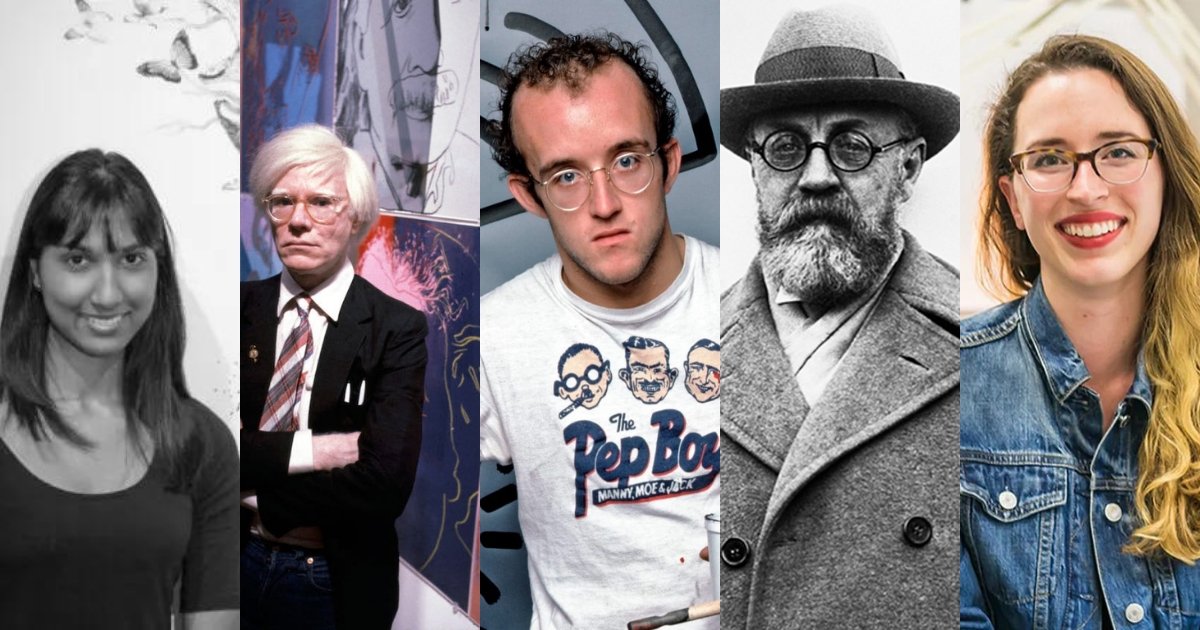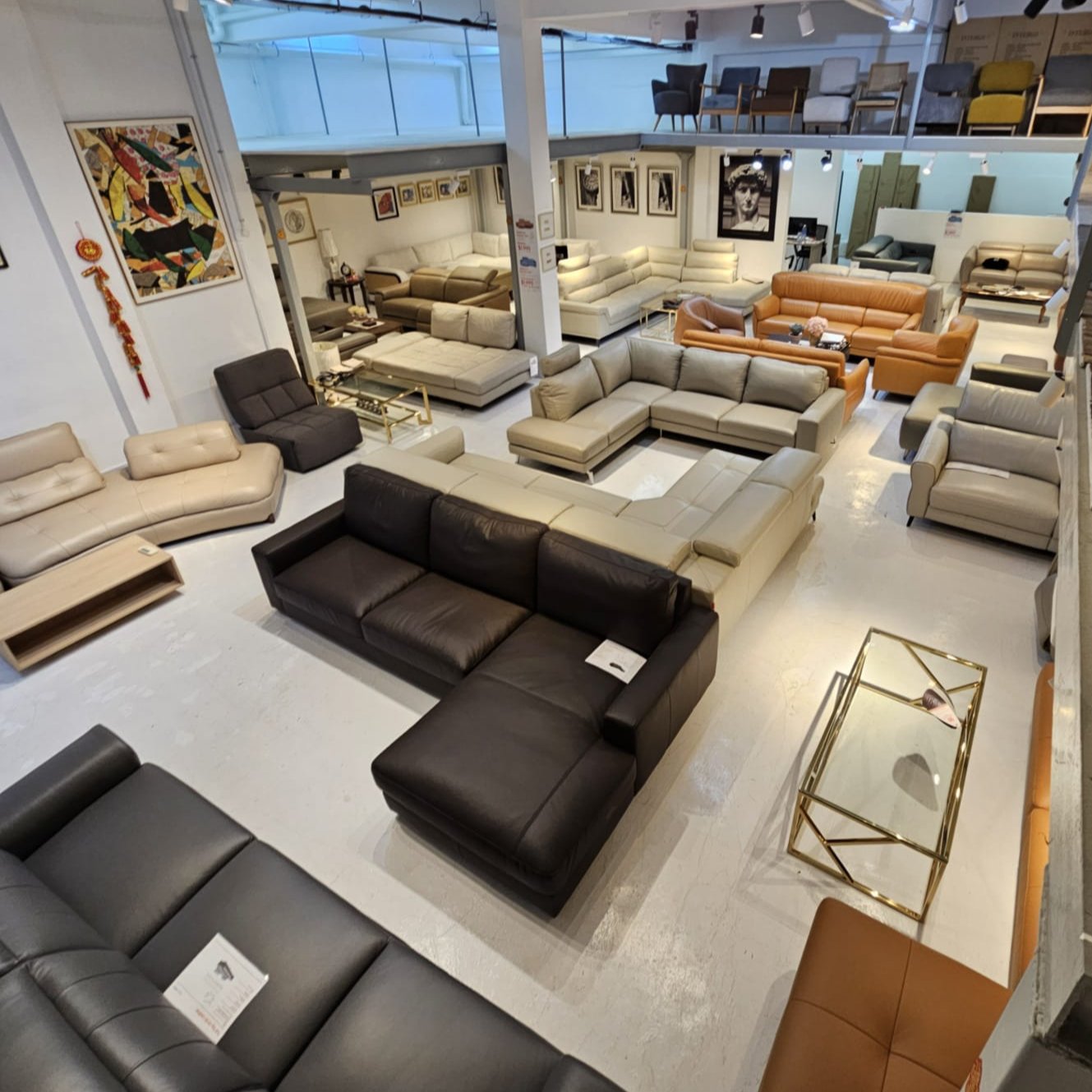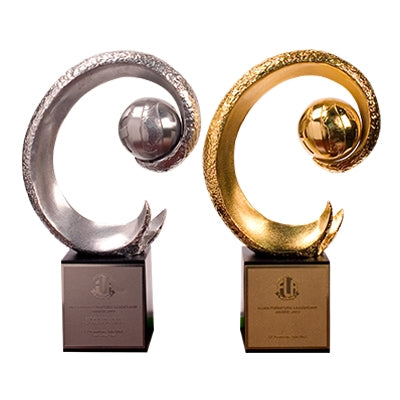As hybrid workplaces and WFH become our future, home decor plays an important role for motivation, inspiration and comfort. Recently, fans are piquing interest in celebrity and key thought leaders' bookshelves that appear as their video background. Once an abandoned area, homeowners are becoming conscious about their walls, what impression does it make, and how it ties to their way of life.
Art on walls dress up your office, ties in colours together and improves creativity. Explore these famous artists and their work to see which resonates with you and your home!

#1 - Pope of Pop
Commercials, celebrities, capitalism and crazy colours, Andy Warhol knows them best. The American artist, film director, and producer was a leading figure in the Pop Art visual movement in the 1960s, progressing from his earlier career as a commercial illustrator.
Warhol is a renowned and controversial artist but that didn't stop his rise to fame. The first works that he submitted to a fine art gallery, homoerotic drawings of male nudes, were rejected for being too openly gay.
He explored multiple mediums as an artist to express his ideas, including painting, silkscreening, photography, film, and sculpture. His best works include the silkscreen paintings Campbell's Soup Cans (1962) and Marilyn Diptych (1962).

#2 - Greatest Colourist of the 20th Century
The French painter Henri Matisse protested against the realistic, traditional and arrogant elite Impressionist artists with Fauvism. Characterized by wild paint brush work and strident colours, Fauvist subject matters had a high degree of simplification and abstraction.
Although Matisse began his art career painting still lifes and landscapes in traditional Impressionism style, these works didn't truly express himself and he diverged into a whole new road.
His mastery of the expressive language of colour and drawing, displayed in a body of work spanning over a half-century, won him recognition as a leading figure in modern art. Fun fact: The art world's greatest rivalry was the intense friendship and competition between Matisse and Pablo Picasso.

#3 - Social Activist, Graffiti Artist
You'll know a Keith Haring when you see one. His distinct pop-graffiti aesthetic is centered on fluid, bold outlines against a dense, rhythmic overspread of imagery and colours. The characters dance and move in your eyes even on flat paper.
Haring's popularity grew from his spontaneous drawings in New York City subways in the 1980s: chalk outlines of figures, dogs, and other stylized images on blank black advertising spaces. After gaining recognition, he created colourful larger scale murals, voluntarily producing over 50 public artworks for hospitals, day care centres, and schools.
Haring's later work often conveyed political and societal themes— anti-crack, anti-apartheid, safe sex, homosexuality and AIDS—through his own iconography. Today, his animated imagery has "become a widely recognized visual language".

#4 - The Artistic Genius
Pablo Picasso is one of the few artists whose career is characterized into periods, each playing an important role in the history of Modern Art. A prolific and tireless innovator of art forms, he was inspired by African and Iberian art and developments in the world around him. Picasso contributed significantly to a number of artistic movements, notably Cubism, Surrealism, Neoclassicism, and Expressionism.
In his paintings, Picasso used colour as an expressive element, but relied on drawing rather than subtleties of colour to create form and space. Much of his painting was done at night by artificial light.
Picasso’s sizable oeuvre includes over 50,000 paintings, prints, drawings, sculptures, ceramics, theater sets, and costume designs.

#5 - Live In Ink and Watercolour
Working through pen, ink, and watercolour, Amelia Ilangaratne produces highly delicate and intricate designs. Based in Hertfordshire, UK, she is inspired by her travels, textiles, love of animals and the natural world, and these reflect beautifully in her works.
She studied Art and Design at the University of Leeds, England, where she experimented with a variety of media and developed a love of drawing using pen, ink and watercolour. This remains her preferred medium today.
Ilangaratne's drawing style is influenced by Japanese art, which elaborately uses lines and patterns. Her Sri Lankan heritage and visits to Sri Lanka as a child leave her in awe of the variety of animals and the beauty of the natural landscapes which also appear in her work.

#6 - Our Imagination is Our Limit
Magesa Biseko's wispy lines and earthly-inspired contours harmonize to evoke feelings of serendipity and connection, bringing out beauty in the most unassuming of nature. Biseko is a London based illustrator graduated with BA in graphic design and illustration from the university of West London. His work is heavily inspired by classical art and traditional mediums.
Biseko doesn't tie himself down to one specific style, instead draws inspiration from both natural and urban environments in various art forms. To free himself from the limitations of the brush, he turned to digital art to create uncanny and memorable artwork to which his imagination is uninhibited.
The nature of his work can be helpful to children who are exploring their creative side and inspire big questions.

#7 - Immersive, Experimental, and Bold
JiaHui Li just has a strong passion for drawing and painting, and she likes creating art more than anything. Li is an experimental artist, always looking for the essence of aesthetics by exploring different mediums, colours, and perspectives. She immerses the audience by blurring the lines between fiction and reality, creating 3-dimensional art that stuns and catches your attention immediately.
Her artwork is contemporary and loud, large focal points mixed with bold and bright colours along on all shapes and sizes of mediums. With a set of unique aesthetic values and artistic skills, Li is exceptional in conveying her own ideas and thoughts through detailed artworks.
Li's collection is packed with fun imaginative worlds, exaggerated by flashy accents. Dive into a different state of mind.

#8 - For Kids Rooms and Creativity
June Erica Vess creates her art using thick, archival quality and acid-free paper which makes them very popular. She chooses her subjects carefully to boost the appeal of her products so as to increase their collectability. Some of her subjects include animals, kids and babies, cartoons, ivy and vines, floral and botanical.
June’s art is playful and full of whimsical. Her prints, posters, and art reflect quirky features, and much of her inspiration comes from the people she knows, her friends and from her hometown.
The epicenter of June's creativity is her drawing table where she is usually found sketching and drawing before she does anything else. Her work belongs in kids' bedrooms where they can approach the natural world with lots of fun.

#9 - On TV Appearances
Combining simplicity and the Japanese concept of "wabi sabi" (finding beauty in imperfection), Rob Delamater lets his creativity roam free without any chains. Each new piece begins with either a sketch or an idea about colours, and it always comes from a direct experience with the real world.
His work is created using various forms of printmaking (hand-painted monoprints in water-based paints on archival paper), painting and collage. Blending details into blocks of colour and abstract shapes renders a peaceful and calm vibe.
Delamater's work can be seen in the Netflix series "Sense8", "Grace and Frankie", “Mozart in The Jungle", "Thirteen Reasons Why", "Chance", and “The Block” (Australia).

#10 - Multidisciplinary Talent
With the use of rich colour combinations and versatile structures, QiLing Gao's artworks embrace the pursuit of freedom and her love for all the minor details in life. She is a graduate from Guangzhou Academy of Fine Arts in 2014 and began her career working with a home decor company.
Gao is particularly strong in capturing every single detail in life with her drawing pens. Her detailed line work adds depth and injects life into still objects even if it's in black and white. You'll always discover new details with every observation.
Gao's methodical approach to line work allows her to shift perspectives and play around with negative space, creating art that is memorable and meaningful.














